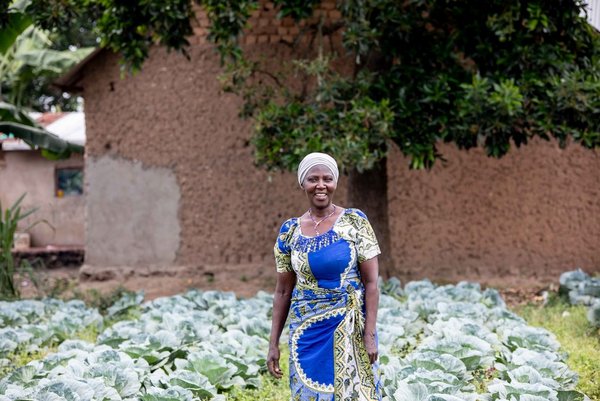 Read this article in French
Read this article in French- Share this article
- Subscribe to our newsletter
The Nutrition in City Ecosystems Project by Swiss Development Cooperation
Initially focused on six secondary cities, the Nutrition in City Ecosystems (NICE) Project strengthens the governance of food systems by promoting multisectoral platforms between city authorities, local businesses, markets and civil society across the health, agricultural and education sectors, and increases the linkage between demand and production of nutritious, agroecologically produced foods.
Targeting urban and peri-urban areas as well as the city foodshed, the cities involved are Dinajpur and Rangpur, in Bangladesh, Busia and Bungoma in Kenya, and Rubavu and Rusizi in Rwanda.
According to city priorities, NICE facilitated a participatory process to identify the value chains of focus in each of the cities. Along these value chains, the project facilitates the use of innovative social business models to increase the demand and production side in tandem. NICE aims to create a dynamic network of city hubs that resolve concrete problems related to food system bottlenecks, and then share these experiences and learning for wider dissemination and scale-up.
Facilitating agroecological transition in the NICE cities
Agroecological transitions require deep structural changes across diverse actors that may have different interests and only interact and cooperate to varying degrees with each other. To be able to facilitate such change, the farming system must be understood. Based on the results of an in-depth analysis, a multi-pathway approach for the introduction of agroecology was adopted in the secondary cities involved in NICE.
At baseline, the NICE project explored agroecological practices in the city foodshed, as well as consumer understandings around agroecology. After the initial value-chain selection, an in-depth analysis was carried out for further prioritisation. This included an examination of the value chains’ nutritional value, suitability to the geographical area, agroecological opportunities, and their potential for income-generation, and for both female and male farmers to become engaged in the production, value addition or selling aspects.
Based on the results of these steps, it was agreed that in each of the secondary cities involved in NICE, a multi-pathway approach should be taken for the introduction of agroecology.
The multi-pathway approach
Next, smallholder farmer representatives were invited, illustratively on 21 July in Rubavu, Rwanda, to meet and exchange with members of the city food-systems platform. The food-systems platform is a multisectoral structure of mainly government actors (health, nutrition, agriculture), as well as representatives of local businesses and civil society. Attention was paid to the potential power imbalance between the different groups, and to placing the producers at the centre of the decision-making process.
With careful moderation, a further multi-stakeholder workshop was held last August to reflect on the opportunities to increase farming-systems resilience and sharpen the focus on where farmers see the most urgent needs. Then, the discussions began to frame the interventions for each of the value chains around these main priorities, and to map these out in smaller groups. This active participation in decision-making by the value-chain stakeholders is considered crucial for the scaling of the agroecological initiatives.
Impressions and next steps
Most interventions proposed by the farmers at the above-mentioned workshops related to the efficient use of inputs connecting to the first level of agroecological transitions. Increasing the efficiency of inputs and also the reduction of costly, scarce or environmentally damaging inputs can translate, for the tomato value chain for example, in the use of better baskets for collection and transportation to reduce waste.
For fish, this can translate into the use of better fishing nets with wider openings so not fully grown fish are not caught and are able to further mature.
Going forward, the NICE project continues to work comprehensively on a multi-pronged approach to popularise agroecology by raising awareness among consumers and by creating an enabling environment for male, but particularly female and young producers, to implement these practices. Prioritising the voice and agency of the producers in this process is considered key for agroecological transformation and scaling.
About the NICE project
The Nutrition in City Ecosystems (NICE) project is supported by the Swiss Agency for Development and Cooperation (SDC). It is implemented and co-financed by a public-private Swiss consortium comprising the Swiss Tropical and Public Health Institute (Swiss TPH), ETH Zürich (Sustainable Agroecosystems Group & the World Food Systems Centre), Sight and Life, and the Syngenta Foundation for Sustainable Agriculture.
NICE project coordinator:
Helen Prytherch, Swiss Tropical and Public Health Institute (Swiss TPH) Contact
with the following authors of this contribution:
Sophie van den Berg, Consultant
Dominique Barjolle, Senior Researcher, ETH Zurich Contact





Add a comment
Be the First to Comment